The latter was played by former MLB relief pitcher Kevin Hickey, who sadly passed away on February 25, 2012. Though Hickey pitched six seasons in the big leagues with the Chicago White Sox and Baltimore Orioles, his path to the show was unorthodox, to say the least. Hickey went to Kelly High School, in Chicago, and was not scouted while he played baseball. In fact, he played very little baseball at all in high school. He did not go to college. It is safe to say, if it wasn't for legendary Chicago White Sox owner Bill Veeck, Hickey would have never gotten an opportunity to play at any level of professional baseball. See, it was Veeck who held an annual tryout giving amateur players an opportunity each spring to get discovered. On only few occasions would any of the players at the tryout stand out enough to get a contract offer from Mr. Veeck to play for the White Sox organization,
Hickey played semi-pro softball, almost at a pick-up level, during his free time while he worked on a steel mill. It was at the behest of his collogues that he decided to attend this tryout. Though Hickey did not have an overpowering fastball, his location and ability to get hitters out impressed those scouting the players. Defying the odds, Hickey was offered a contract to play for the Chicago organization. However, he ended up playing for the Paintsville Highlanders in 1978, a co-op team in the Appalachian League which rostered several players on loan from many organizations. And the reviews were mixed, it was not as if he necessarily distinguished himself.
In 1979, he moved up to Chicago's Single- A team in Appleton, and despite a 5-10 record had a low enough ERA that the organization moved him up to Double- A for 1980. He had a break-out season and earned an opportunity to pitch in Major League spring training in 1981.
Though his rise through the minor league system was relatively rapid, it was still unexpected that this would lead to anything more than an opportunity to face some big-league hitters. However, he made the White Sox ballclub out of spring training. As a lefty reliever, he got into 41 games, pitched 44 innings and had three saves for the 1981 White Sox. He followed that up with a solid 1982 season, pitching in 60 games and 78 innings, and won 4 games, saving six others. After a down season in 1983, he was released at the end of spring training in 1984. He quickly signed a minor league contract and started the season in Triple- A. After a 6.27 ERA in just over 47 innings, he was demoted to Double- A for three games before finding himself in Single- A, pitching for the Appleton squad once again. He had some better results pitching mostly as a starting pitcher. In August, Hickey was traded to the New York Yankees along with future Cy Young Award winner Doug Drabek for shortstop Roy Smalley. In 1985, he split the time in the minor league organizations of the Yankees and Philadelphia Phillies. A year later, he pitched to a 6.51 ERA for the Triple- A Portland team of the Pacific Coast League (Phillies). He split the 1987 season with the White Sox and San Francisco Giants organizations, producing similarly bad results.
Hickey's track record of the past five seasons would have made him the prototypical player fictitious Cleveland Indians owner Rachel Phelps would have brought to spring training in the first Major League movie. Perhaps the directors were motivated by his struggles in real life and found him to be perfect for the sequel. Fortunately for Hickey, his story was not over. He signed a minor league contract with the Baltimore Orioles and had a solid season pitching as a lefty specialist for the Rochester Red Wings of the International League. He pitched to a sub two ERA and walked just nine batters in 37 innings pitched. The following season, Hickey made the Orioles out of spring training, getting back to the majors for the first time since 1983. He pitched in 51 games and a 2.92 ERA for a team that improved 33 games in the standings from 1988. After a couple of less impressive seasons in 1990 and 1991, Hickey finally called it a career. Amazing that he pitched all the way through age 35. Just in time to make his appearance in Major League 2.
There are few people whose real life fit in as perfectly for the character he played like Kevin Hickey and Schoup. I wish director David Ward found a better way to use Hickey's underdog, unsung experience to better personify Schoup's character. It would have been the perfect backdrop for a small part in one of the best sequels ever made.
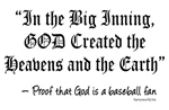
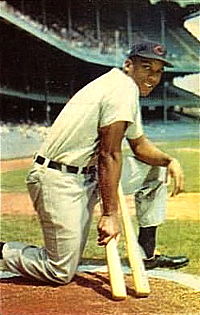
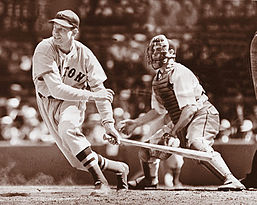
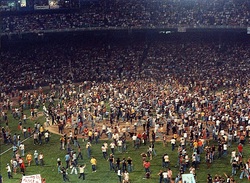

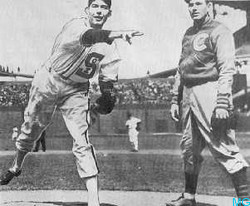
 RSS Feed
RSS Feed
